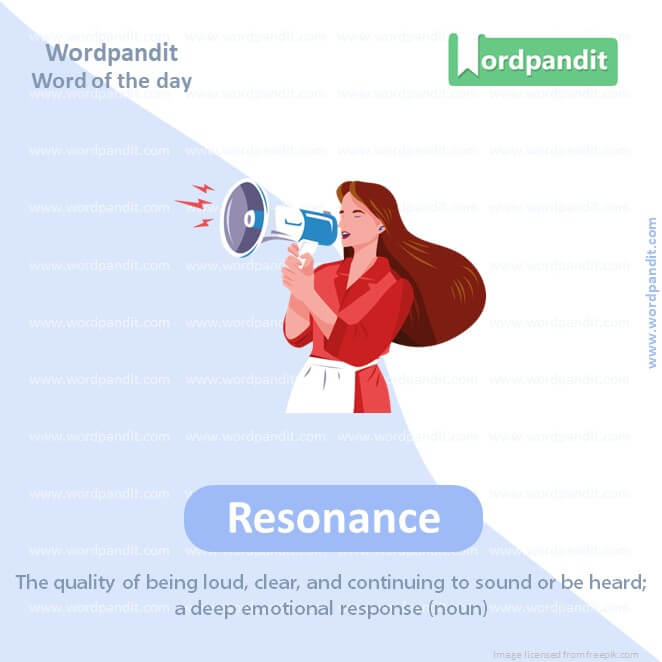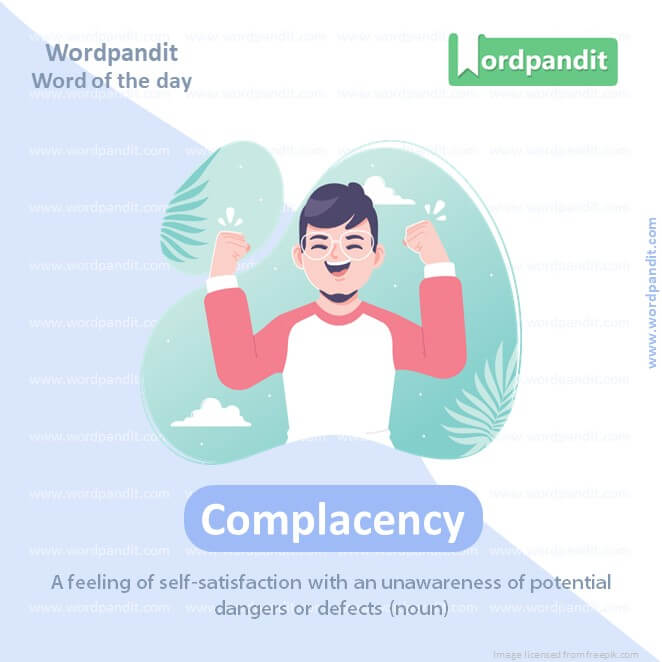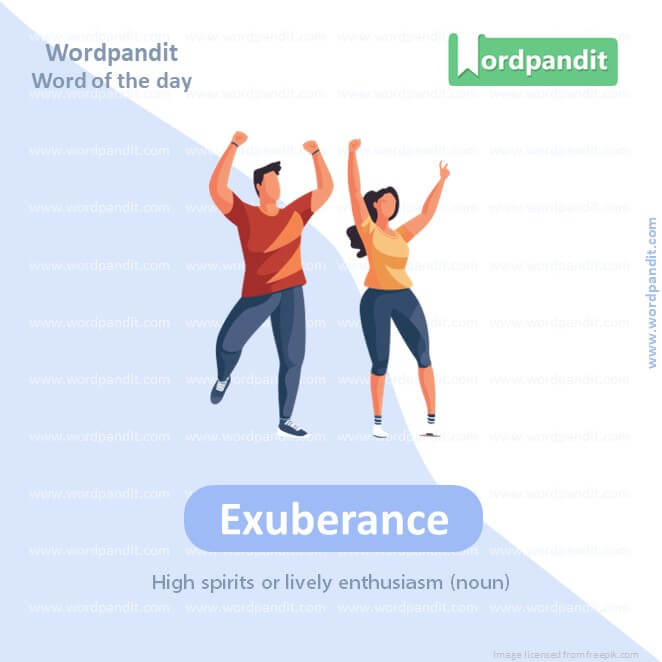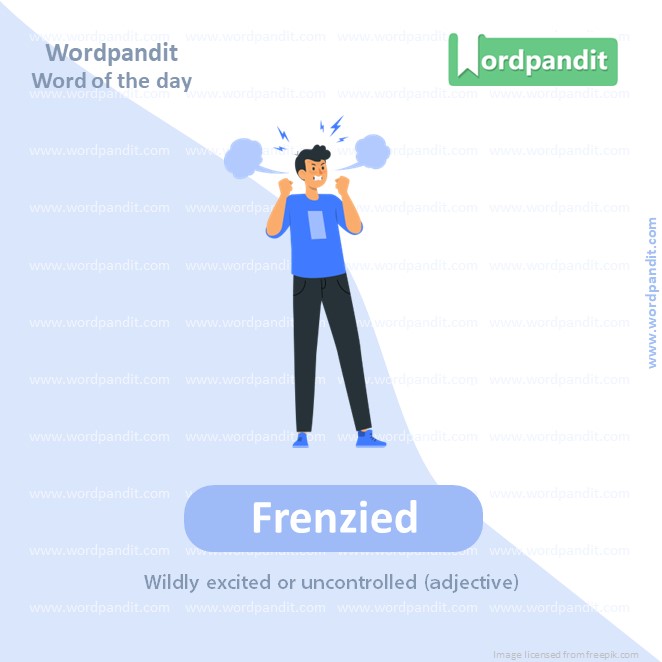Daily Vocabulary Words: List of Daily Used Words in Leading International Newspapers
Hi there. Welcome to this special section @ Wordpandit.
Our endeavour here is very simple: to highlight important daily vocabulary words, which you would come across in leading newspapers in the country. We have included the following newspapers in our selection:
• The New York Times
• The Washington Post
• Scientific American
• BBC
• The Guardian
• Psychology Today
• Wall Street Journal
• The Economist
We are putting in extensive work for developing your vocabulary. All you have got to do is be regular with this section and check out this post on a daily basis. This is your repository of words that are commonly used and essentially, we are posting a list of daily used words. Hence, this has significant practical application as it teaches you words that are used commonly in leading publications mentioned above.
Visit the website daily to learn words from leading international newspapers.
WORD-1: Embolden
CONTEXT: The success of past initiatives should embolden leaders to make hard decisions in the interest of public health, demonstrating that effective city governance can prevail without external pressures.
SOURCE: New York Times
EXPLANATORY PARAGRAPH: When you feel a little scared to do something like climb a tall tree, and then your friend cheers you on, saying you can do it, that’s like being “emboldened.” It means to feel braver or more confident because someone encourages you.
MEANING: To make someone feel more courageous or confident (verb).
PRONUNCIATION: em-BOHL-duhn
SYNONYMS: Encourage, inspire, fortify, uplift, empower
USAGE EXAMPLES:
1. The coach’s pep talk emboldened the team to play their best.
2. Her supportive words emboldened him to pursue his dreams.
3. The success of their first project emboldened them to take on bigger challenges.
4. The positive feedback emboldened her to share more of her artwork.

WORD-2: Resonance
CONTEXT: As mothers and parents, our advocacy for clean air gains more resonance when we consider the profound impact on the well-being of our children and the next generation.
SOURCE: New York Times
EXPLANATORY PARAGRAPH: Have you ever played a drum and felt the deep vibrations that make your whole body feel the sound? That feeling is like “resonance.” It’s when something makes a strong, deep impact or connection.
MEANING: The quality of being deep, full, and reverberating or having a strong impact or connection (noun).
PRONUNCIATION: REZ-uh-nuhns
SYNONYMS: Reverberation, echo, impact, significance, importance
USAGE EXAMPLES:
1. The speaker’s words had a deep resonance with the audience.
2. The music filled the room with a rich resonance.
3. The painting had a resonance that touched everyone who saw it.
4. Her stories always carry a resonance that stays with you long after you’ve heard them.
WORD-3: Galvanising
CONTEXT: This unifying sentiment, identified as 12 times more popular than creating jobs, serves as a galvanising force for individuals and communities worldwide.
SOURCE: New York Times
EXPLANATORY PARAGRAPH: Imagine you’re playing a game, and your team is losing, but then you make an amazing play that gets everyone excited and ready to win. That’s like “galvanizing.” It means to motivate or energize people to take action.
MEANING: To shock or excite someone into taking action or becoming active (verb).
PRONUNCIATION: GAL-vuh-nahy-zing
SYNONYMS: Energize, stimulate, inspire, motivate, spur
USAGE EXAMPLES:
1. Her passionate speech galvanized the audience to support the cause.
2. The crisis galvanized the community to come together and help each other.
3. The unexpected win galvanized the team to train even harder.
4. The new project galvanized the company’s efforts to innovate.
WORD-4: Penetration
CONTEXT: It seems that muted election campaigns are likely to be the new norm as campaigning has become personalised, with the massive penetration of smartphones and access to social media platforms.
SOURCE: New York Times
EXPLANATORY PARAGRAPH: When you have a sharp pencil and it easily goes through a piece of paper, that’s like “penetration.” It means going through or entering something deeply.
MEANING: The act of piercing or entering into something deeply (noun).
PRONUNCIATION: pen-uh-trey-shuhn
SYNONYMS: Entry, piercing, infiltration, invasion, immersion
USAGE EXAMPLES:
1. The arrow’s penetration into the target showed the archer’s skill.
2. The company focused on market penetration to reach more customers.
3. The writer’s words had a deep penetration into the reader’s emotions.
4. The submarine’s deep-sea penetration allowed for unique scientific discoveries.

WORD-5: Complacency
CONTEXT: there is a symbolic message behind the “abki baar 400 paar” pitch — keeping the organisational machinery agile and not letting it fall into complacency.
SOURCE: New York Times
EXPLANATORY PARAGRAPH: Imagine you’re playing a game, and you’re winning by a lot, so you start to think you don’t need to try hard anymore. That feeling of being too comfortable and not trying your best is called “complacency.”
MEANING: A feeling of satisfaction with oneself or one’s achievements, leading to a lack of effort or desire to improve (noun).
PRONUNCIATION: kuhm-pley-suhn-see
SYNONYMS: Self-satisfaction, smugness, contentment, satisfaction, apathy
USAGE EXAMPLES:
1. The team’s complacency led to their defeat in the final match.
2. Success can sometimes breed complacency if one is not careful.
3. Overcoming complacency requires continuous effort and self-reflection.
4. His complacency with his current job prevented him from seeking new opportunities.
WORD-6: Persuasion
CONTEXT: Evangelicals are more interested in pluralism and persuasion. Fundamentalists focus more on God’s law. Evangelicals tend to emphasize God’s grace.
SOURCE: New York Times
EXPLANATORY PARAGRAPH: Imagine you’re trying to convince your friend to play your favorite game instead of theirs. The way you talk to them and give them reasons to try your game is called “persuasion.” It’s about convincing someone to do something.
MEANING: The act of convincing someone to do or believe something (noun).
PRONUNCIATION: per-swey-zhuhn
SYNONYMS: Convincing, influence, argument, reasoning, coaxing
USAGE EXAMPLES:
1. Her persuasive skills helped her win the debate.
2. The advertisement used emotional persuasion to sell the product.
3. The teacher used logic and facts as tools of persuasion.
4. He was swayed by her persuasive arguments.

WORD-7: Exuberance
CONTEXT: the sheer exuberance and radical love of a good Pentecostal church is transformative.
SOURCE: New York Times
EXPLANATORY PARAGRAPH: Have you ever been so happy and excited that you couldn’t stop jumping and laughing? That feeling of overflowing joy and energy is called “exuberance.” It’s like being super, super happy and full of life.
MEANING: High spirits or lively enthusiasm (noun).
PRONUNCIATION: ig-zoo-ber-uhns
SYNONYMS: Enthusiasm, vitality, liveliness, buoyancy, effervescence
USAGE EXAMPLES:
1. The children’s exuberance was contagious; everyone started smiling and laughing.
2. She approached every task with exuberance and passion.
3. The party was filled with exuberant music and dancing.
4. His exuberance for life inspired those around him.

WORD-8: Frenzied
CONTEXT: At its worst, the quest for miraculous experience can lead to a kind of frenzied superstition, where carnival barker pastors and faux apostles con their congregations with false prophecies and fake miracles, milking them for donations and then wielding their abundant wealth as proof of God’s favor.
SOURCE: New York Times
EXPLANATORY PARAGRAPH: Imagine a group of kids playing a game they love so much that they run around really fast and excitedly. That’s like being “frenzied.” It means being in a state of wild excitement or frenzy, like when something really fun or surprising happens.
MEANING: Wildly excited or uncontrolled (adjective).
PRONUNCIATION: fren-zeed
SYNONYMS: Frantic, frenetic, feverish, manic, wild
USAGE EXAMPLES:
1. The fans went into a frenzied celebration after their team won the championship.
2. The artist worked in a frenzied rush to finish the painting before the deadline.
3. The market was in a frenzied state after the announcement of the new product.
4. Her frenzied enthusiasm often led to impulsive decisions.

WORD-9: Relegated
CONTEXT: This is an extreme form of Christian supremacy, one that would relegate all other Americans to second-class status.
SOURCE: New York Times
EXPLANATORY PARAGRAPH: Imagine you have a collection of toys, but you don’t play with some of them anymore because you’re more interested in new ones. You might put those old toys in a box and keep them aside. That’s like “relegating.” It means to move something to a lower or less important position or status.
MEANING: Demoted to a lower rank or position (verb).
PRONUNCIATION: REH-luh-gaytd
SYNONYMS: Demote, downgrade, transfer, shift, assign
USAGE EXAMPLES:
1. After the new manager arrived, he decided to relegate some employees to different departments.
2. The old technology was relegated to a backup role.
3. The book was relegated to the bottom shelf after the new releases arrived.
4. She felt relegated to a minor role in the project despite her expertise.
WORD-10: Worshiping
CONTEXT: I was raised in a more fundamentalist church, left it for evangelicalism and spent a decade of my life worshiping in Pentecostal churches.
SOURCE: New York Times
EXPLANATORY PARAGRAPH: When you really admire someone or something and show them a lot of respect and love, like when you look up to your favorite superhero or a special toy, that’s called “worshiping.” It’s about showing deep admiration and devotion.
MEANING: Showing reverence and adoration for someone or something (adjective).
PRONUNCIATION: WUR-ship-ing
SYNONYMS: Adoring, reverent, devoted, respectful, idolizing
USAGE EXAMPLES:
1. The villagers gathered for their weekly worshiping ceremony at the temple.
2. She had a worshiping admiration for her favorite singer.
3. His eyes were filled with worshiping awe as he looked at the ancient monument.
4. The worshiping crowd cheered as their leader entered the stadium.
Vocabulary Daily Use Words
In the architecturally diverse world of language learning, ‘vocabulary daily use words’ act as a cornerstone. We often take these words for granted, but their significance in day-to-day communications is nothing short of monumental. Mastering these ‘vocabulary daily use words’ should be more than an ancillary task on the sideline; it should take the center stage in your language learning journey.
To begin with, approach ‘vocabulary daily use words’ with the same gusto and reverence as you would an untapped treasure chest. Go beyond the conventional realm of textbooks and explore the world of contemporary literature, newspapers, and digital content. By immersing yourself in these mediums, you’re aligning your learning with real-world language usage, thereby gaining a practical understanding of ‘vocabulary daily use words.’
Memory-enhancing tools add an extra layer of effectiveness to your learning. Flashcards, for example, are a great way to make your study sessions interactive and memory-forging. Coupled with the Leitner system, which is a principle of spacing and repetition, you can ensure better recall and understanding of ‘vocabulary daily use words.’
Furthermore, leveraging mnemonic devices aids in etching the ‘vocabulary daily use words’ into your memory. Associating common words with unique and memorable narratives in your mind enhances their recall. Regular revision and using these words in routine conversations further cement your proficiency.
The potency of immersion as a language learning strategy cannot be emphasized enough. Conversing with native speakers, if possible, provides context to ‘vocabulary daily use words’ and boosts your fluency.
In conclusion, mastering the ‘vocabulary daily use words’ is an enriching journey that requires ongoing effort, continual exposure, and hands-on practice. The strategy of learning through various mediums, using memory-enhancing techniques, leveraging mnemonic devices, and immersion can help demystify these words and enhance your overall language proficiency. So, gear up and embrace the linguistic adventure of mastering the ‘vocabulary daily use words.’







